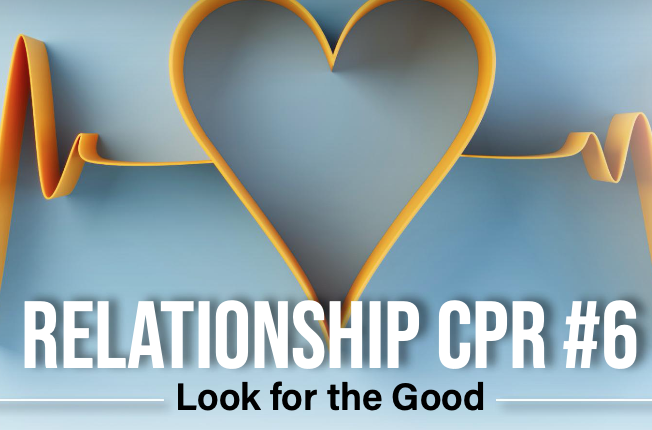I attended a secular conference at which the keynote speaker said, “Love in Greek means look for the good.” I’ve never been accused of being a Greek scholar, but I don’t believe she is correct. Even so, I appreciate the sentiment.
Zig Ziglar, arguably the finest motivational speaker this country has ever produced, said, “Some people find fault like there’s a reward for it.” I would find that to be humorous if it were not so true.
Hopefully you have people in your life who can brighten up any room just by entering it—people who are cheery, encouraging and just a delight to be around. Those who frequently find fault in others, on the other hand, can brighten up any room—just by leaving it.
As Christians, we have ample reason to look for the good in others. We have a Savior who, because of His great love for us, went to extremes which words are woefully inadequate to describe. He sees good in us, even when we do not. And He clearly wants us to see the good in His other children as well.
Can you imagine how our churches, workplaces and families would prosper if each person went out of their way to look for, and acknowledge, the good they see in others? Consider for a moment a concept called the RBA or Relationship Bank Account. Like a typical bank account, you may make deposits or withdrawals in other’s lives. Make more deposits and you can expect the balance (health) of the relationship to rise. Make more withdrawals and the opposite is likely to occur.
You have a RBA with every person with whom you interact on a regular basis. It will likely not surprise you to know that Scripture is replete with counsel on how to make more deposits and enjoy healthier relationships.
In Eph 4:31, 32 we read: “Get rid of all bitterness, rage, anger, harsh words, and slander, as well as all types of evil behavior. Instead, be kind to each other, tenderhearted, forgiving one another, just as God through Christ has forgiven you.”
We often use Heb. 10:25 to convince people they should attend church. In the NLT it reads “And let us not neglect our meeting together, as some people do, but encourage one another, especially now that the day of His return is drawing near.” If we practiced more of the counsel found in the preceding verse, we would likely have many more people wanting to worship with us.
On the negative side, a key withdrawal that we too often make is to point out the bad we see in others. Perhaps we should take to heart what we read in Rom 14:12, 13: “So then, each of us will give an account of ourselves to God. Therefore, let us stop passing judgment on one another.”
So, here’s a challenge for you. For each of the next 30 days, select three people in your life for whom you will make a specific deposit. It can be a sincere compliment, a genuine offer of assistance, even a simple but warm smile. Please don’t think you have to limit yourself to just three per day, or that you must stop after 30 days.
Modern research is proving that the adage “what you focus on grows” is true—whether your focus is positive or negative. The study of confirmation bias also helps explain why “Look for the good” is a path to healthier relationships. I’m so glad that modern day research is finally catching up to what Solomon wrote a few years back “for as a man thinks in his heart, so is he”(Prov. 23:7).
I often say that relationships can be challenging at times. Perhaps forming the habit of looking for the good can make them less challenging. I dare say try it—what have you got to lose?
Ron Price is the author of three books and creator of Play Nice in God’s Sandbox video series.









